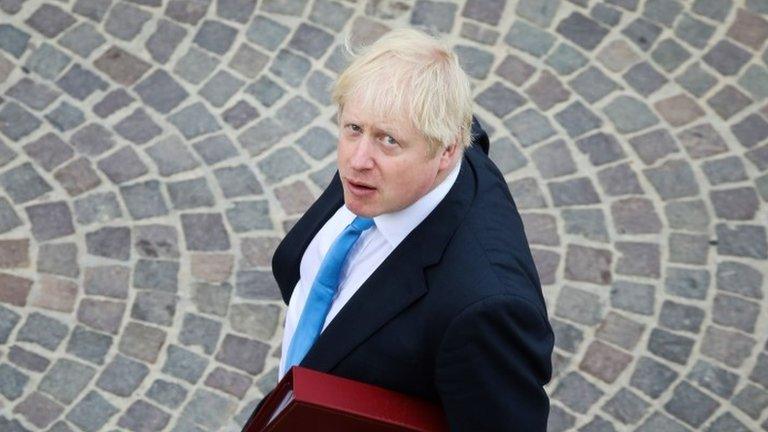Week ahead in Parliament
- Published
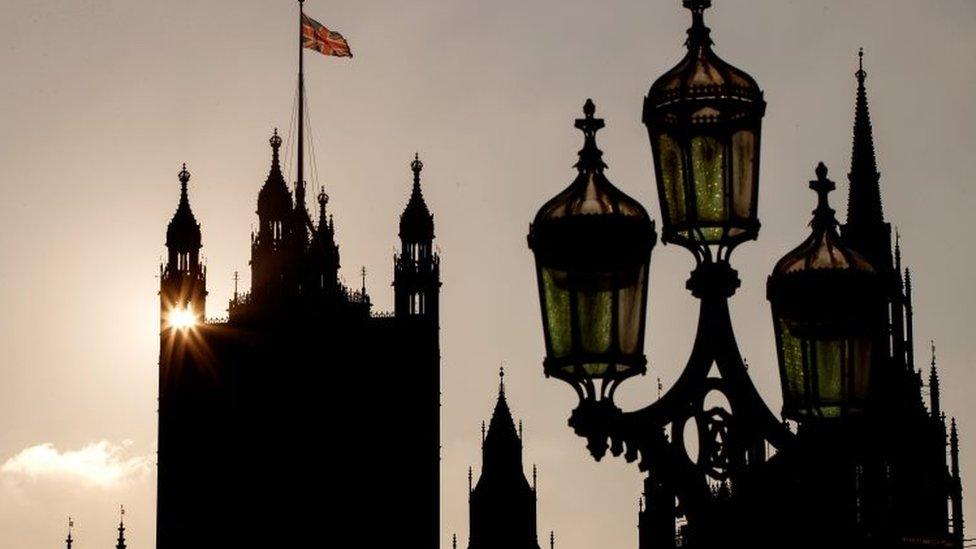
After this week's Commons defeat, the new prime minister due to kiss hands next week will be painfully aware of the troubles ahead.
A combination of abstentions and outright rebellion have imposed some awkward requirements on the government which could well prevent ministers from suspending - or "proroguing" - Parliament, in order to exit the EU without deal.
And it also demonstrated that there is a potential Commons majority to block such an exit - although there are some Brexiteer Labour MPs who might ride to the government's rescue in some future crunch vote.
I still think the moment of maximum vulnerability for a new PM will come when they are forced to reveal their hand on Brexit; will they opt for a no-deal exit? A reheated version of Theresa May's thrice-defeated withdrawal agreement? Or some new and cunning plan?
And will the UK leave on schedule on 31 October, or will there have to be another membership extension?
After a long period of parliamentary torpor, politics will come to the boil again in the autumn - and all the usual Westminster dramas that normally accompany a change of prime minister; who's in, who's out? What policies will change? What will the opposition do?
All those count for nothing in the shadow of Brexit. And it will all be fought out on the floor of the Commons.
Meanwhile, we're at an interesting point in the work cycle of select committees, with a lot of reports being polished off (in some cases with one eye on the possibility of an autumn election) and a lot of new inquiries being launched.
Thus the Brexit Committee has just published its new jeremiad on the consequences of a no-deal exit from the EU, and the Foreign Affairs Committee plans to rush out the report of its emergency inquiry into the Kim Darroch leak (the official title is FCO communications and security of information) before MPs depart for their summer break.
There may even be time for committee chairman Tom Tugendhat to make a statement in the house, unless he has been summoned to ministerial glory by the incoming prime minister.
Another committee to watch is the very high powered and very grand Joint Committee on the National Security Strategy, which is expected to report on the linked National Security Capability Review and the National Defence Programme, and looks highly likely to conclude that much more security and defence spending is needed.
Then it will plunge into new inquiries into Britain's 5G network and the vast security implications that will have (including those of potential Chinese involvement if Huawei supplies key components) and into UK bio-security in the wake of the Ebola outbreak in central Africa.
In fact new inquiries are being born wherever you look: with new licences for the National Lottery under discussion, not to mention the 25th anniversary of the first lottery draw, the Digital Culture Media and Sport Committee is planning an inquiry into the lottery.
Environmental Audit will turn their attention to the environmental impact of tourism and travel, focusing on how to reduce the impact, given that tourism is calculated to add 5% to global greenhouse gas emissions.
The Northern Ireland Committee is launching an inquiry into organised crime gangs (OCGs in the jargon popularised by the BBC's Line of Duty) operating in Northern Ireland with a focus on cross-border criminality and international networks including smuggling of illegal goods, human trafficking and data crime.
And the Women and Equalities Committee will launch a new inquiry into "prostitution how can we tackle inequalities and harm?"
Most of these will not see actual evidence sessions until September - but look out for the detailed calls for evidence.
Here's my rundown of the week ahead:
Monday, 22 July
The Commons week opens (14:30 BST) with Housing, Communities and Local Government Questions - after which any post-weekend ministerial statements or urgent questions will be taken.
Then MPs will have a chance to pay tribute to the retiring Serjeant at Arms, the Commons official responsible for the order and security of the House, Kamal El-Hajji. He has served since February 2016.
The day's legislating is on the report and third reading stages of the (not very controversial) Non-Domestic Rating (Lists) Bill, which allows ministers to change the dates on which non-domestic rating lists must be compiled.
A slot has also been provided to consider any further Lords amendments to the Northern Ireland Executive Formation Bill.
And the day ends with keen angler Charles Walker leading an adjournment debate on degraded chalk stream environments - southern England has 80% of all the worlds examples of these rare ecosystems, and most are becoming seriously degraded, as water is drained out for human use, or pollution seeps in from agricultural chemicals or septic tanks.
Mr Walker will make the point that the UK is in no position to deliver environmental lectures to the rest of the world, while it continues to neglect precious ecosystems of its own.
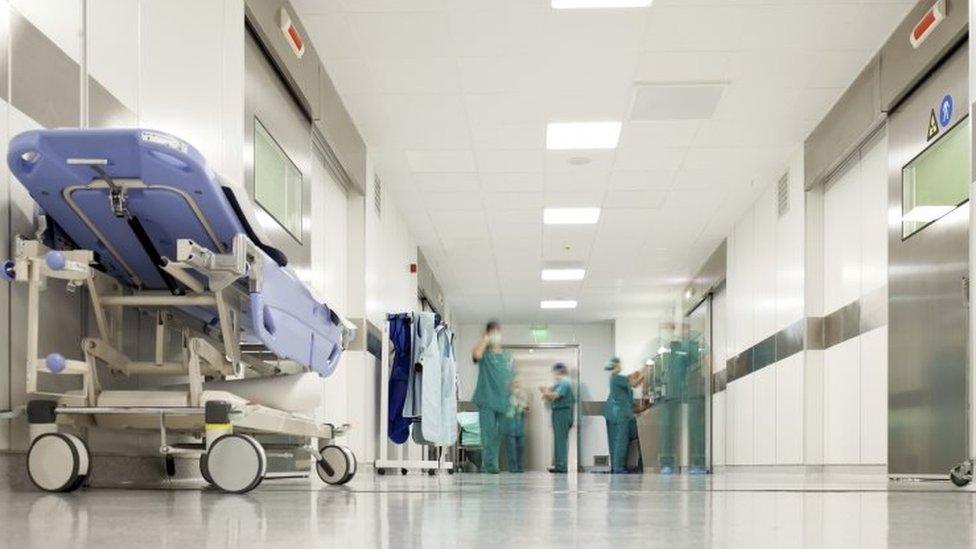
MPs will debate a petition about the NHS
In Westminster Hall (16:30) MPs debate e-petition 242300: "Don't put our NHS up for negotiation - Please introduce concrete safeguards that will make sure our NHS is kept out of any future trade deals after Brexit".
This attracted 166,862 signatures and the government responded by saying: "The NHS is not, and never will be, for sale to the private sector.
"The government will ensure no trade agreements will ever be able to alter this fundamental fact."
On the committee corridor, Home Secretary Sajid Javid is before the Home Affairs Committee (14:00) for what might be a departmental swan song, if he is moved to the Exchequer by the incoming prime minister.
This is a general evidence session which can range right across his responsibilities.
In the Lords (14:30) questions to ministers include the crossbencher and former ballerina, Baroness Bull, asking about the impact of weight and shape-related bullying, criticism and teasing on long-term mental health.
Then peers move on to the detail of the Parliamentary Buildings (Restoration and Renewal) Bill - the legislation setting up the structure to oversee the restoration of the multi-billion pound restoration of the crumbling Victorian Palace of Westminster.
This is a committee stage consideration, so issues are not normally pushed to a vote, but there are amendments down on a variety of issues, with the Labour former cabinet minister Lord Blunkett and the Conservative Lord Cormack particularly active.
The amendments cover such subjects as disability access and the opportunities for archaeology provided by the restoration project.
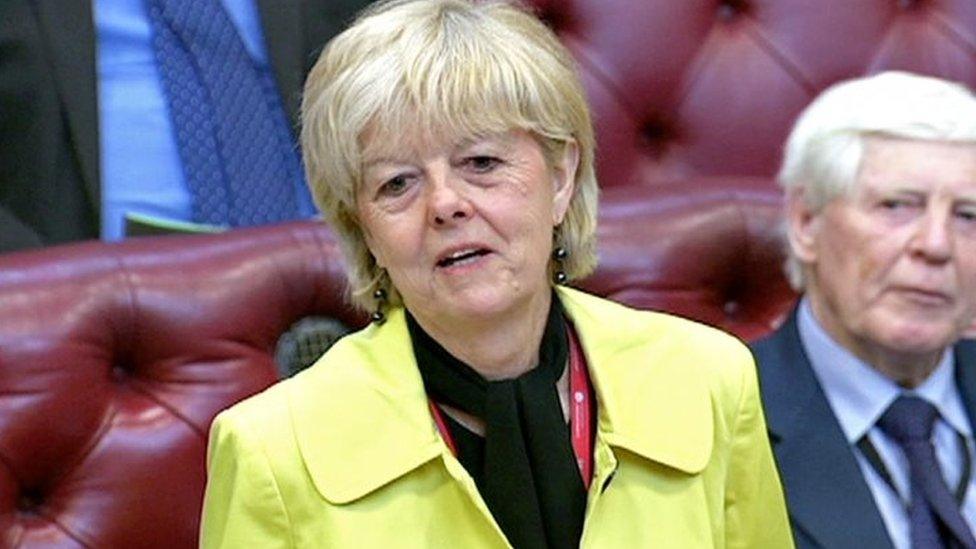
Baroness Hayter was sacked as shadow Brexit minister
Offstage (although a few aftershocks may manifest themselves in the chamber) an emergency meeting of Labour peers will be held in response to Baroness Hayter's dismissal as a shadow Brexit minister, after she reportedly compared the approach of Mr Corbyn's staff to that of "the bunker" in Downfall, a 2004 film depicting Adolf Hitler's final days.
They will consider a motion calling for a no confidence vote in Mr Corbyn.
If passed, a ballot would then be held of all Labour peers.
On one level this is a gesture - the result would be an expression of opinion and would not have any direct impact on Mr Corbyn's leadership, but it would still be a stinging rebuke.
It is also worth remembering that the Labour peers have declared UDI (Unilateral Declaration of Independence) from Mr Corbyn before, and may be about to do so again.
One sign of feelings running high was the cheering that greeted Baroness Hayter's appearance in the chamber on Thursday, and the sight of the Labour whip Lord Stevenson thanking them for their support.
Tuesday, 23 July
Commons business opens (11:30) with Health and Social Care Questions.
The day's Ten Minute Rule Bill, from the Conservative ex-minister Tim Loughton is the Tibet (Reciprocal Access) Bill, which would require an annual report to Parliament on the restrictions imposed on UK nationals visiting Tibet, and allowing those involved in imposing such restrictions to be denied permission to enter the UK.
Then the House returns to a pattern familiar from recent months, where MPs rattle through a series of parliamentary chores - approving statutory instruments on cableway installations and British nationality, and reappointing an electoral commissioner, before moving on to a general debate on body image and mental health.
There will also be time available, if necessary for more parliamentary ping-pong over the Northern Ireland Executive Formation Bill and consideration of any further Lords amendments.
In Westminster Hall, subjects for debate include: UK trade and investment strategy (09:30), roadside recovery vehicles and the use of red lights (11:00) and the effectiveness of the child maintenance service (14:30).
On the committee corridor, Business, Energy and Industrial Strategy (10:00) has a follow-up session on the safety of electrical goods with the Consumers and Corporate Responsibility Minister, Kelly Tolhurst, and Graham Russell, of the Office for Product Safety and Standards, and Environmental Audit (10:15) has a one-off session on climate change and biodiversity with Lord Deben, the chairman of the committee on climate change, and Tony Juniper, the chairman of Natural England.
In the Lords (14:30) peers will rattle through their own series of legislative chores - starting with two brief rubber stamping exercises - the third reading of the National Insurance Contributions (Termination Awards and Sporting Testimonials) Bill, and the third reading of the Wild Animals in Circuses (No.2) Bill.
Then come statutory instruments on trade in animals and animal products, small-scale radio multiplex and community digital radio and British nationality.
Unless something else intrudes, they may well be home in time for tea.
Wednesday, 24 July
The Commons opens what will be a rather strange and momentous day with half an hour of Scotland questions (from 11:30) before Theresa May arrives in the chamber for her final Prime Minister's Question Time, at noon.
Expect the weird combination of sentimentality, point-scoring and ill-grace which has come to characterise prime ministerial farewells, from Thatcher through to Blair and Cameron.
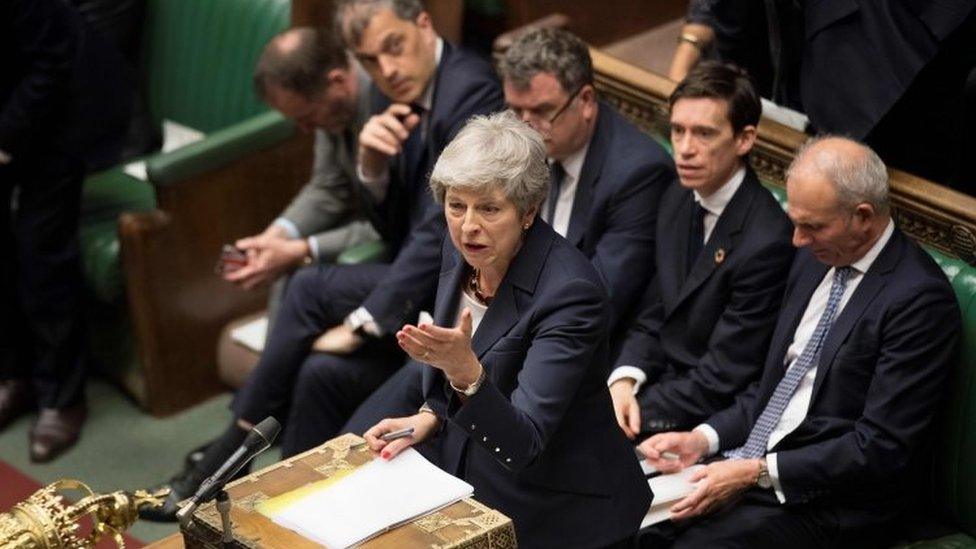
It will be Theresa May's final PMQs on Wednesday
Then comes a Ten Minute Rule Bill, the Dockless Bicycles (Regulation) Bill, from Labour's Daniel Zeichner, who wants to bring in a new regulatory system for cycle rentals, to deal with the problem of hundreds of bikes being dumped by their users, leaving local councils to clear up the mess.
It is an issue Mr Zeichner, a member of the Transport Committee, has been pursuing for some time.
There's more time available, if necessary, for consideration Lords amendments, and MPs will polish off the almost completely uncontroversial Kew Gardens (Leases) (No.3) Bill.
There might be a bit of theatre from the SNP, because the process will involve and English Grand committee under the English Votes for English Laws (EVEL) rules, but this may take little more than a blink of an eye to go through.
And after that there's a general debate on the role and sufficiency of youth services - but eyes will be elsewhere as Theresa May hands in her resignation and her successor assumes office.
In Westminster Hall subjects for debate include the local housing allowance and homelessness (09:30); the female offender strategy one year on (14:30) and workplace deaths in Scotland (16:30).
One the committee corridor, there's a real rarity, a committee appearance by the Leader of the Opposition, as Jeremy Corbyn gives evidence to the Home Affairs Committee (14:00) on Islamophobia.
And away from the Commons chamber, and subject to the logistics of going to the Palace to kiss hands and assume office as prime minister, Boris Johnson (or Jeremy Hunt) is expected to address Conservative MPs at a special session of the backbench 1922 Committee at some point in the evening.
In the Lords (15:00) questions include the crossbencher Lord Singh of Wimbledon asking about an independent review of the Foreign Office's support for persecuted Christians.
Then peers debate the detail of the Birmingham Commonwealth Games Bill, and later, the contribution of members of the House of Lords to the work of the Council of Europe.
Thursday, 25 July
The last day of term, before Westminster begins its summer break, opens (09:30) with Environment, Food and Rural Affairs Questions.
Will Michael Gove still be secretary of state by then?
Next (from 10:10) there are questions to the MPs who speak for the church commissioners, the House of Commons Commission, the Public Accounts Commission and the Speaker's Committee on the Electoral Commission, before the leader of the House, who may or may not, by this time be Mel Stride, sets out what MPs will be doing on their return in September, in the Commons business statement.
The rest of the day will be taken up by the traditional end of term debate on the adjournment, which allows any MP to make a speech on the subject of their choice.
In Westminster Hall (13:30) Labour MP Neil Coyle will lead a debate on the reform of the Mental Health Act 1983, arguing that the laws under which about 50,000 people a year are deprived of their liberty are out of date and ripe for reform.
In the Lords (11:00) questions to minister include Labour's Lord Collins of Highbury asking about the final judgment and summary of the independent tribunal into forced organ harvesting from prisoners of conscience in China, published on 17 June.

There will be a debate on the availability of NHS dentistry
The day's debates, on subjects chosen by backbench peers, are on the availability of NHS dentistry, the leaking of confidential messages from Sir Kim Darroch and their subsequent publication, and the needs of women in the criminal justice system.
And, barring a recall of Parliament during the summer break, that's all until Tuesday, 3 September. I will post my usual preview at the end of August.
- Published28 October 2019
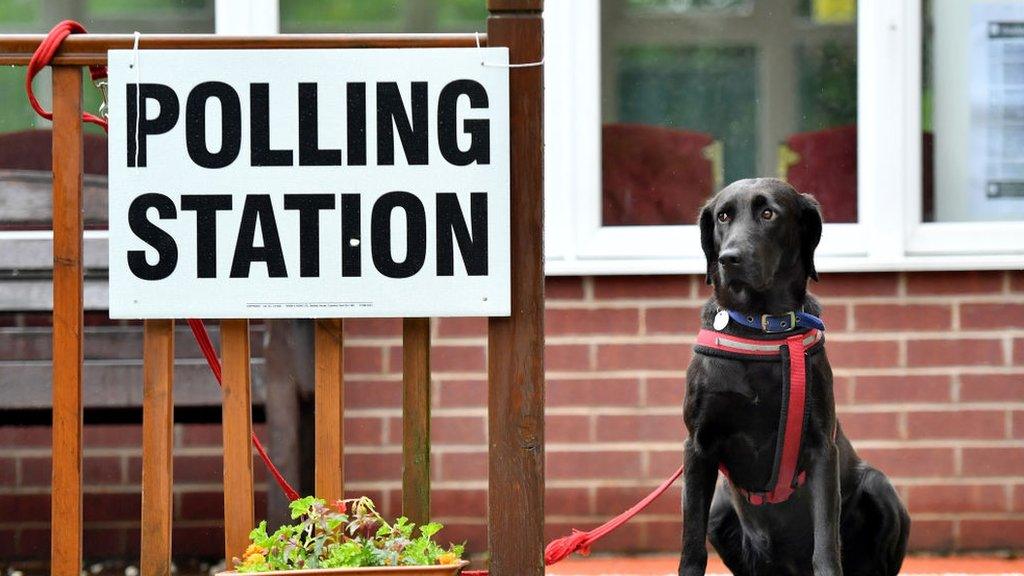
- Published11 July 2019
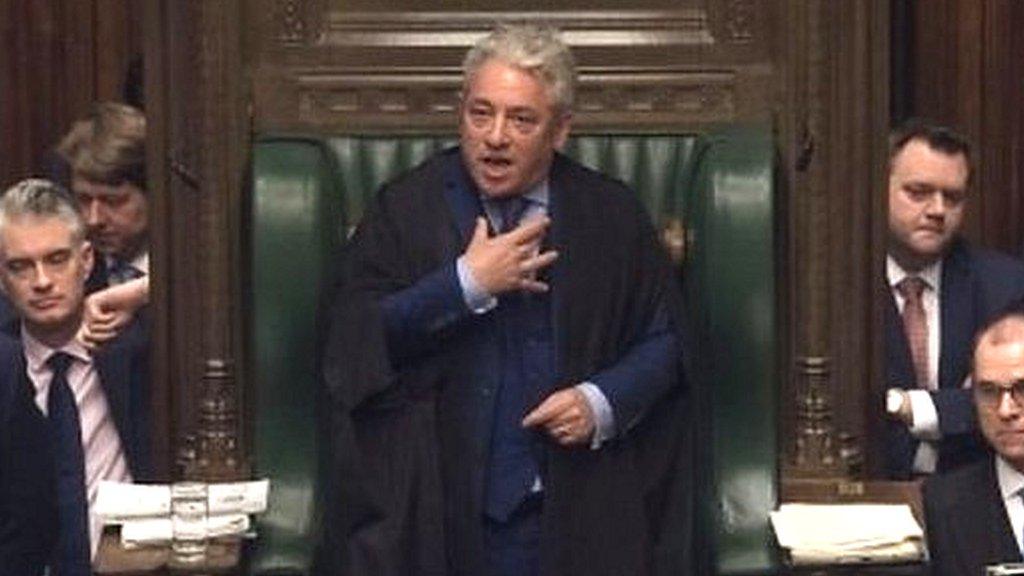
- Published3 September 2019
